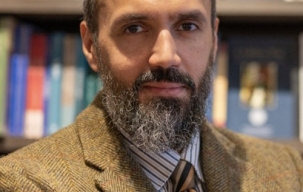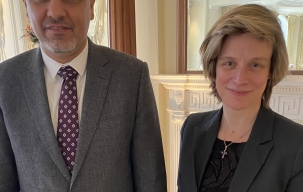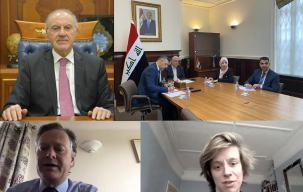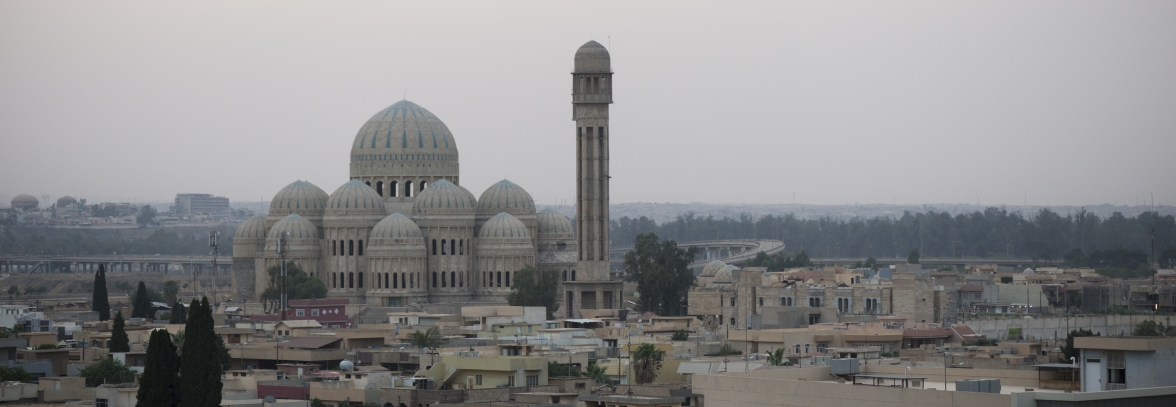Though close in proximity, Iraq differs from the other Gulf states. The country today known as Iraq, created in 1932, tells a fraction of the story of the region at the centre of the Middle East, that has been central to both its civilisation and conflicts.
Iraq’s nodal geographical location makes it a vital nation in the Middle East, bordering the key regional players of Saudi Arabia, Syria, Turkey and Iran. It is virtually landlocked apart from a 58 kilometer of coast in the northern Arabian Gulf. In its recent history Iraq has played host to a number of foreign interests, yet it boasts arguably some of the oldest and most significant history and civilisation in the world.
"Cradle of civilisation"
Often referred to as one of the cradles of civilisation, the fertile region between the rivers of the Tigris and Euphrates was known as Mesopotamia, or the "Land Between the Rivers".
Iraq has been and still continues to be the strategic and cultural heart of the region. The region has been home to successive civilisations since the 6th millennium BC, including the titanic empires of the Babylonian, Sassanid and Abbasids. The region has been the site of a vast number of empires, tribes and religions. As such, Iraq has also given the world many innovations as well as sublime poetry and writing and great architecture and painting. The city of Baghdad, having been at the centre of the commercial and intellectual world, now plays an important strategic role in the region, as a centre of security and administrative control.
Ethnic diversity
Iraq’s diverse ethnic makeup, as well as its geography, tells the story of both its successes and conflicts. The creation of the Kingdom of Iraq in 1938 grouped ethnicities including Arabs, Kurds, Turkmens and Yazidis under the same flag. As such, certain leaders and groups have exploited such ethnic divides to engage in sectarian violence that has marred the country's growth in recent decades.
The Kurds
Atrocities against ethnic groups, especially the Kurds, have been carried out by both Saddam Hussein and the Islamic State group (IS). The Kurds are concentrated in the mountainous northern region of Kurdistan and have long fought for independence from Iraq over the decades. This has been the source of tension and conflict between the Kurds and the Iraqi government.
Following the fall of Saddam Hussein's regime, a semi-autonomous Kurdistan region was established in Northern Iraq. (See our page on the Kurdistan Regional Government.) The Kurds of Iraq have witnesses much conflict and turmoil in recent decades. They played a vital role in the defeat of IS.
Inherent instability
The geography and ethnic makeup of Iraq has meant it is susceptible to instability and violence, particularly from foreign actors and terrorist groups such as Iran or the Islamic State group/Daesh. Iraq is currently experiencing relative calm as it recovers from decades of unrest and war, from the 2003 invasion to the seizure and occupation of huge swathes of territory by IS.
The diminishing presence of foreign troops in the region as well as scheduled democratic elections in October 2021 signal renewed hope for the region in returning to a state of stability and prosperity. As Iraq rebuilds, the UK has an opportunity to redefine its relationship with the nation and region at large, becoming an economic partner as well as a strategic ally.
 Members content
Members content

